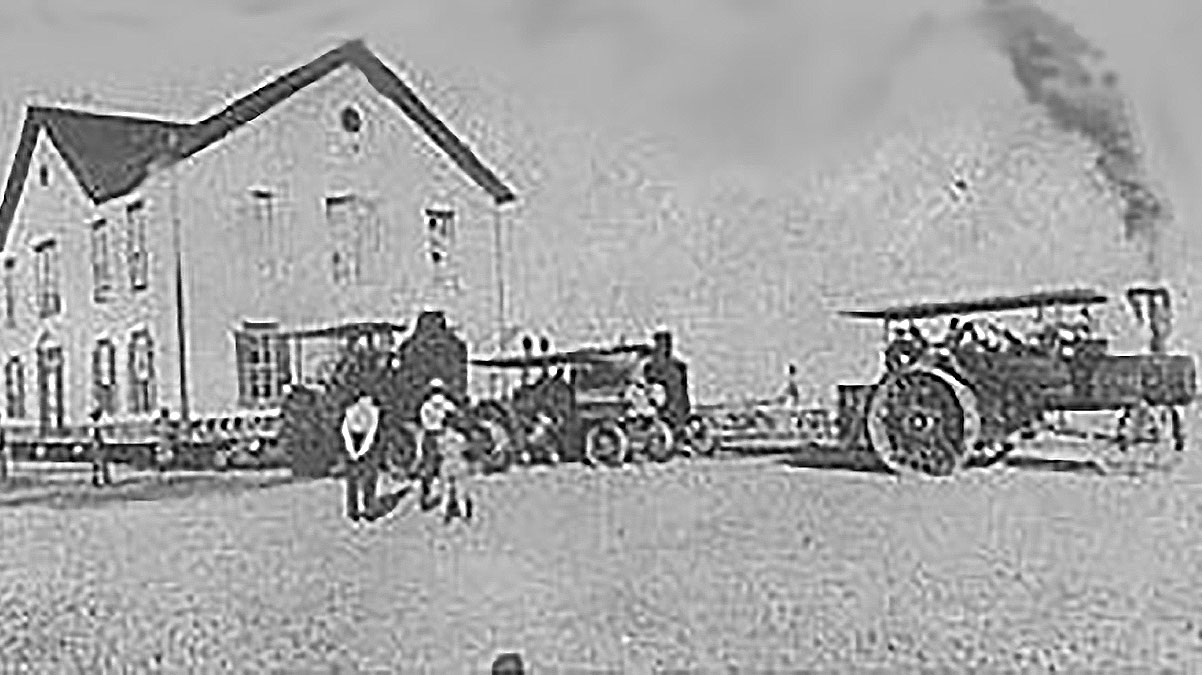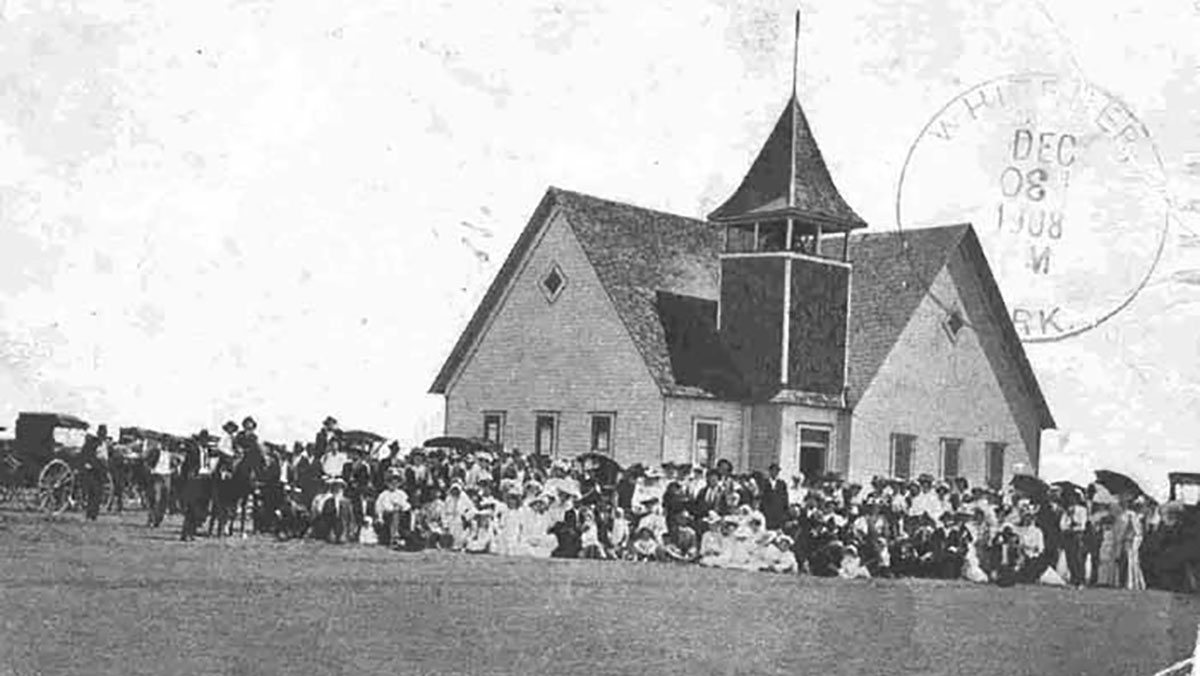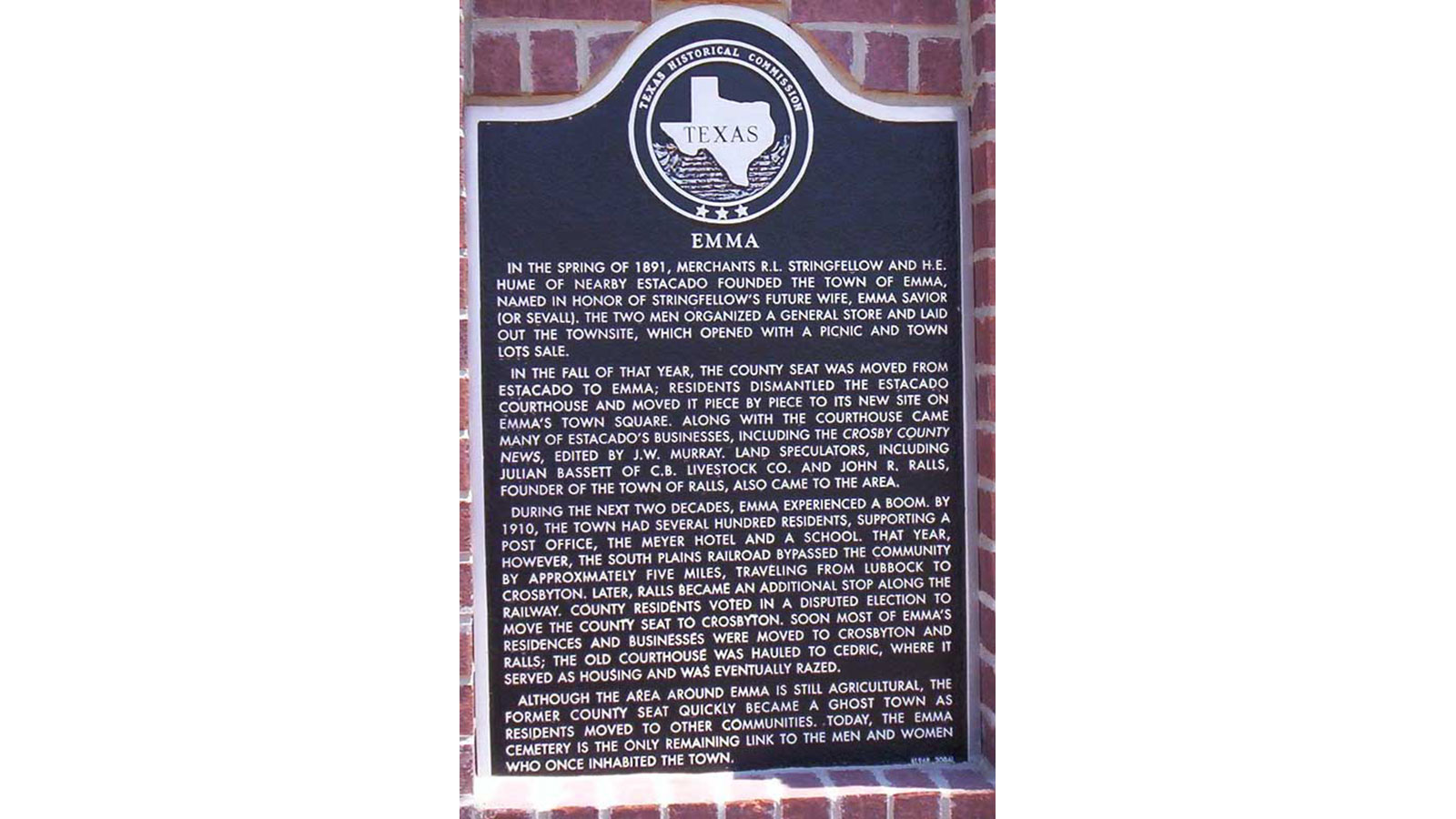CROSBY COUNTY, TX — This week marks the anniversary of a pivotal moment in the history of Crosby County, Texas — a day that sealed the fate of the once-thriving town of Emma. On September 17, 1910, the residents of Crosby County cast their votes in a heated election to determine the future of their county seat. By a vote of 198 to 120, the town of Crosbyton emerged victorious over Emma, beginning a slow and steady decline that would transform the once-prominent settlement into a ghost town.
Emma’s story began in the fall of 1890 when R.L. Stringfellow and H.E. Hume, owners of a general store in Estacado, acquired a section of land in the heart of Crosby County. By 1891, they had laid out a town on this site and named it after Emma, the woman Stringfellow would later marry. The new town rapidly grew and, just months later, wrestled the title of county seat from Estacado.

Emma's courthouse was dismantled, and its remnants were carted to Cedric, another fledgling community.
The relocation of the Crosby County courthouse to Emma signaled the town's golden age. By 1910, Emma boasted several churches, a school, a post office, a bank, and a bustling population of about 800. The town's future seemed bright, but that same year, the railroad bypassed Emma by five miles and this would prove devastating for the future of Emma.

The Baptist Association of Emma, circa 1908
With the railroad favoring Crosbyton, it became clear that Emma's days as the county seat were numbered. The county-wide vote held on September 17, 1910, confirmed the shift in power. By October of that year, most of Emma's residents and businesses began a mass migration to Crosbyton. In a remarkable caravan involving four engines (tractors), 30 men, and 22 mules, entire buildings were moved across the prairie to Crosbyton, signaling the end of Emma’s brief but vibrant existence.

The historical marker where the town of Emma once stood.
The town's courthouse was dismantled, and its remnants were carted to Cedric, another fledgling community. By 1911, Emma's post office had been moved to Ralls, and the town was effectively abandoned.
Today, only a Texas historical marker on State Highway 207 stands to commemorate Emma. What was once a bustling center of commerce and governance now exists only in history books 114 years later.
Subscribe to the LIVE! Daily
Required






Post a comment to this article here: